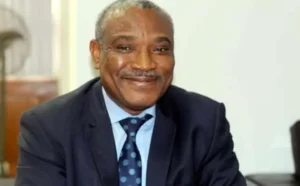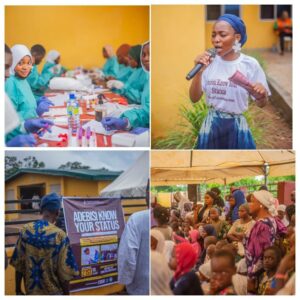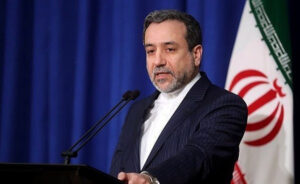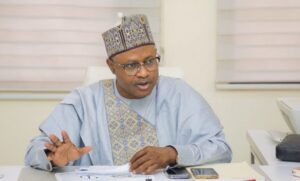
As political activities begin to stir ahead of the 2027 governorship election in Oyo State, agitation for power rotation away from Ibadan is gaining renewed momentum. The call is being championed by political stakeholders across the Oke-Ogun, Ogbomoso, Oyo and Ibarapa zones, amid long-standing grievances over Ibadan’s political stranglehold on the state.
For over two decades of Nigeria’s current democratic journey, Ibadan — the state capital and most populous zone — has maintained a dominant grip on the governorship seat, commanding nearly 24 of the 28 uninterrupted years since 1999. With Governor Seyi Makinde expected to complete his second term by 2027, the trend remains consistent.
Uneven Political Representation Across Zones
Oyo State is politically structured into five zones: Ibadan (11 LGAs), Oke-Ogun (10 LGAs), Ogbomoso (5 LGAs), Oyo (4 LGAs), and Ibarapa (3 LGAs). The Ibadan zone enjoys numerical supremacy across the state’s political institutions — from the State House of Assembly to the National Assembly.
Out of the 32-member Oyo State House of Assembly, Ibadan holds 16 seats — exactly half — while Oke-Ogun follows with 7, Ogbomoso with 4, Oyo with 3, and Ibarapa with 2. Similarly, in the 14 federal constituencies, Ibadan commands 46.4%, Oke-Ogun 21.4%, Ogbomoso 14.1%, Ibarapa 11%, and Oyo just 7.1%.
The senatorial districts further reinforce the disparity. Ibadan dominates Oyo South and has shared a majority presence in Oyo Central. In Oyo North, although Oke-Ogun has three times held the senatorial seat since 1999, Ogbomoso currently leads with four tenures.
Governorship Seat: A Glaring Imbalance
Governorship data clearly highlight Ibadan’s longstanding advantage. From 1999 to 2003, Lam Adesina (Ibadan) held the post, followed by Rashidi Ladoja (Ibadan), and later Adebayo Alao-Akala (Ogbomoso) for a brief tenure during Ladoja’s impeachment saga. Post-2007, the seat returned firmly to Ibadan — with Abiola Ajimobi (2011–2019) and Seyi Makinde (2019–2027).
By 2027, Ibadan would have governed the state for 23 years and one month, leaving only four years and four months to Ogbomoso, and none to Oke-Ogun, Oyo, or Ibarapa zones.
Deputy Governorship: A Temporary Consolation
While the deputy governorship has provided symbolic recognition to other zones, particularly Oke-Ogun, it remains a limited form of inclusion. Since 1999, Oke-Ogun has produced five deputy governors — totaling nearly 20 years in office by 2027. Ogbomoso and Ibadan have each held the position for under five years.
Growing Calls for Inclusivity
The disparity has not gone unnoticed. Late former Governor Adebayo Alao-Akala, in his autobiography Amazing Grace, decried the imbalance, describing it as “an affront to democratic fairness.” He advocated for a rotational governorship arrangement similar to Nigeria’s federal structure to ensure equitable political access.
Echoing this sentiment, former Minister of Communications, Adebayo Shittu, recently declared that Oke-Ogun would demand nothing short of the governorship seat in 2027. According to him, the region has been politically loyal and must no longer accept the deputy governorship as compensation.
“It’s time for Ibadan to concede to Oke-Ogun,” Shittu said, challenging the long-held belief that Ibadan’s large population justifies its electoral dominance. “The idea that Ibadan indigenes form over 50% of the population is misleading,” he added, pointing out that many residents in the capital are settlers from other zones.
Partisan Pragmatism vs. Equity Demands
Political parties, however, remain cautious. Sources within both the Peoples Democratic Party (PDP) and the All Progressives Congress (APC) argue that their candidate selection process is guided by electoral viability, not regional sentiment.
“Governorship is not zoned by sentiment. We look at who can win. That’s democracy,” said a senior party official.
President-General of the Central Council of Ibadan Indigenes (CCII), Chief Ajeniyi Ajewole, also defended the Ibadan dominance, saying leadership is about competence and electability, not origin.
“Anyone can become governor if the party supports them and the people vote. Ibadan is home to all. It is not exclusive to its indigenes,” he noted.
A State at the Crossroads
Despite such reassurances, the perception of marginalization remains deeply ingrained among non-Ibadan indigenes. The growing restiveness, particularly in Oke-Ogun, could force a rethinking of political calculations ahead of 2027.
Many observers believe that only a power shift can calm the storm and foster unity across the state. With the chorus for rotational governance growing louder, political parties may face increasing pressure to prioritize equity alongside electability.
As the countdown to 2027 begins, the question remains: Will Oyo State choose continuity or change? Will the call for balance finally alter the state’s political arithmetic — or will numbers, once again, prevail over fairness?
Only time will tell.








